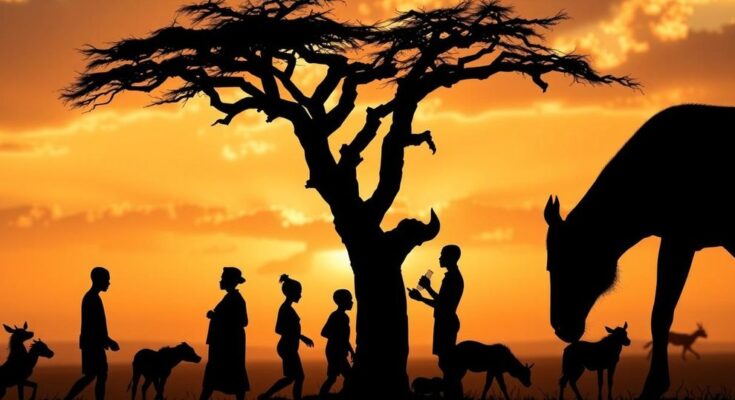On September 25, 2024, Zimbabwe and Namibia announced significant wildlife culling due to severe drought-induced food shortages affecting millions. Zimbabwe will cull elephants for the first time in decades, while Namibia has initiated its own cull. These measures, driven by the need to address food insecurity amid ongoing human-animal conflicts, have raised ethical and ecological concerns.
On September 25, 2024, the environmental repercussions of severe drought conditions in southern Africa prompted drastic actions in Zimbabwe and Namibia. Following their worst drought in four decades, Zimbabwean officials plan to conduct a mass culling of elephants to alleviate food shortages affecting approximately 7.6 million people. This decision marks the first elephant cull since 1988 and responds to a crisis exacerbated by El Niño-induced drought, which has diminished agricultural output across the region. In a similar move, Namibia recently decided to cull 83 elephants and the wildlife population exceeding its carrying capacity to provide sustenance for its impacted communities. This alarming situation highlights the strained relationship between humans and wildlife as competition for dwindling resources escalates, leading to increased human-elephant conflicts. While the cull aims to alleviate immediate food shortages and manage elephant populations in overpopulated areas, it raises profound ethical and ecological concerns regarding the treatment of wildlife during such crises.
The article addresses the severe drought conditions in southern Africa, particularly the direct impact of El Niño, which has led to significant food insecurity in Zimbabwe and Namibia. With many communities grappling with severe food shortages, human-wildlife conflicts have intensified as elephants and other fauna seek resources in increasingly depleted environments. The drastic measure of culling elephants, necessitated by the drought, has revived past discussions regarding wildlife management, ethical practices in conservation, and the sustainability of such solutions in the long term. The measures taken by Zimbabwe and Namibia highlight the challenges faced by governments to balance the needs of human populations against wildlife conservation efforts in the face of climate change.
In summary, the drought conditions in southern Africa have led Zimbabwe and Namibia to undertake the controversial decision to cull elephants and other wildlife in response to urgent food shortages. This situation underscores the intricate and often contentious relationship between human populations and wildlife in times of environmental distress. As the culling efforts commence, it is imperative to consider long-term strategies for both food security and wildlife preservation, rather than relying solely on immediate, reactionary measures.
Original Source: www.circleofblue.org




